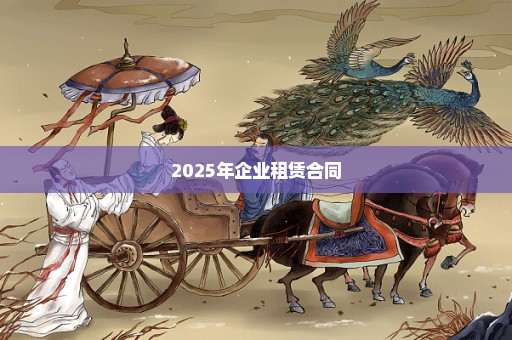hope和wish在语法上有什么区别?
一、用作及物动词的wish和hope之比较
1.与不定式短语搭配时的异同比较。
作及物动词时,wish和hope都与to do sth.搭配。但分析表明,wish to do sth.意为“现在”想做某事,它表达的是眼下的要求或意愿(一般容易实现),其中“do”隐含的时间状语是“now”或“then”。而hope to do sth.意为想在“将来”做成某事,它表达的是一个想要实现的目标(不一定能实现),其中“do”隐含的时间状语是“in some time to come”。请比较下列从语料库中摘引的例子(注:本文中所有举例均摘自Cobuild语料库)。
A lady wished to see me urgently.
I wish now to give a more detailed description of the 1974 Remembrance Day march.
DRI hopes to Out-Dos Ms-Dos with DR Dos.
Their lawyer hops to take the case to the European Council.
有时,wish与 to do sth.搭配主要是表示礼貌和郑重,如:
The authors wish to thank Ron Hochsprung at Apple for his patience and support.
2.与that引导的从句搭配时的异同比较。
作及物动词时,wish和hope都与that-clause搭配,但存在三方面的差异:1)在组合模式上,wish和that-clause只以sb. + wish + that-clause的形式组合。而hope和that-clause可以sb. + hope + that-clause以及It + be + hoped + that-clause两种形式组合。2)在语义上,wish + that-clause和hope + that-clause虽都表示愿某种理想的情况(由that-clause表示出来)在“过去”、“现在”或“将来”出现。但wish意味着所希望的是与事实相反的情况,因此几乎没有出现的可能性,而hope意味着说话人认为所希望的情况有可能出现(也许并不会出现),并对之怀有期盼。3)在用法上,wish后的that-clause中的谓语动词只用两种时态:过去完成时(表示该情况与过去的事实相反)和一般过去时(表示该情况与现在或将来的事实相反)。如:
One only wishes that he had spent more time gaining a perspective outside America.
I wish your teeth were larger.
I do wish they would get on with it.
而hope后的that-clause中的谓语动词可用多种时态。一般说来,过去时态表示陈述的是“过去”的情况,进行时态表示陈述的是“现在”的情况,将来时态或一般现在时态表示陈述的是“将来”的情况。请看举例:
I hope you were inspired by the march, the drums, and God knows what.
I hope Apple is working on the next-generation Macintosh operating system.
It's hoped that it will shortly be supplying 40% of South Africa's motor fuel requirement.
Let's hope he gets better and comes home.
3.wish带名词做宾语的分析。
用作及物动词的wish可以带名词做宾语,两者的搭配方式为:wish sb. sth.或 wish sth. to /on sb.(表祝愿),wish sb. to do sth. 或 wish sth. done(表愿望)。例如:
I wish them all the luck in the world.
I don't want to wish any bad luck on them.
Many wish Britain to have a major influence in world affairs again.
There is some sensitive material which the depositor does not wish divulged.
而在该语料库中没有发现hope后带名词作宾语的例子。
二、用作不及物动词的wish和hope之比较
用作不及物动词时,wish主要出现在if+sb.+wish、 as+sb.+wish、when+sb.+wish等组合中,表示“眼下”的愿望或要求,这些组合既可作状语,也可作插入语。而hope主要用在sb. +hope、it + be + hoped、what + sb. + hope + be等组合中,表示对一个理想情况的期盼,这些组合只作插入语。例如:
Mr. Scowcroft means that the UN is now operating as the US wishes.
When you print the briefing charts, you can also, if you wish, print the note files.
The result, he hoped, would be happy.
This, it is hoped, might provide an economic incentive for conservation.
I put the key into what I hoped was the right lock.
此外,用作不及物动词的wish和hope都与for sth.搭配,但wish for sth.表示想有某“物”的愿望(眼下没有得到的可能性)或要求(有可能性),而hope for sth.表示对一理想 “结果”的期盼(不一定能实现)。请看以下举例:
I wish for a system that respects the aspiration of the young.(愿望)
Lady Littelton wishes for a room of separation between the eating room and the drawing room.(要求)
But chemists hope for a breakthrough in at least one area of research.
三、用作名词的wish和hope之比较
1.语法搭配及搭配意义的比较。
用作名词时,wish(es)与to do sth. / for sth. 搭配表示眼下想做某事 / 想有某物的具体“愿望”,与 of sb.搭配表示某些人的笼统“意愿”。请看举例:
It has no wish to intervene in the internal affairs of another nation.
That's what had prompted Charles Babbage to groan out his famous wish for tables calculated by ‘steam’.
The NF upholds the wish of the majority of the British people.
而hope(s) 常与of doing sth. / of sth. / for sth. 搭配,表示对一个理想结果的主观“期盼”或有利于某结果出现的客观“机会”;与that-clause搭配,表示对出现某情况的“期盼”或有利于某情况出现的“机会”;与for sb.搭配,表示对某人成功的“期盼”或有利于某人成功的“机会”,等等。请看举例:
Those two defeats effectively ended any hopes Britain had of winning the group.
This revived hopes of a further interest rate cut.
If it is, there will be no hope for the youngsters in the village.
2.动词搭配比较。
表示具体“愿望”的wish(es)主要与有“表达”、“存在”、“实现” 等含义的动词搭配,如express、 speak out、 state、 groan out、 make no secret of、have、come true等。表示笼统“意愿”的wish(es)则主要与有“遵从”、“了解”、“违背”等含义的动词搭配,如conform to、 make concession to、 be responsive to、 uphold、 correspond with、pay heed to、 be sensitive to、 take into account、ignore、 disregard、 override等。
表示主观“期盼”的hope(s)主要与有“持有”、“放弃”、“引发”、“打消”、“实现”等含义的动词搭配,如 have、cherish、sustain、cling to、give up、abandon、offer、 give、raise、arouse、renew、revive、dash、shatter、end,be fulfilled / substantiated等。而表示客观“机会”的hope(s)主要与有“提供”、“ 看出”、“存在”等含义的动词搭配,如offer、give、hold、hold out/deny、see、detect、have、there be等。
3.形容词搭配比较。
wish(es)除在best wishes中与best搭配表祝愿外,很少与其他形容词搭配。而hope(s)可与大量的形容词搭配,它们包括high(“强烈的”期盼), consistent、cherished、widely held、lingering(“怀有的”期盼),big、much、great、obvious、clear、high、boosted(“极好的”机会),pious、vague、grim、scant、slender、faint、a ray of、a beam of、a glimmer of、a glow of(“一线”期盼或机会),forlorn、vain、doomed、broken(“无望的”期盼)等。
4.介词搭配比较。
wish(es)主要与表示“遵从”的according to及表示“违背”的against搭配成介词短语做状语或表语。例如:
She thinks it is not right to impose something like the poll tax against the wishes of a majority of the population.
The disposal of these ‘research’ embryos should, as far as possible, be according to the donor's wishes.
而hope(s)主要与表“持有”含义的介词in以in (the) hope(s) of doing sth./sth.(怀着对某结果的期盼)、in (the) hope(s) that + clause(怀着对某情况的期盼)的形式组合起来做状。例如:
Then there's the stream of day-trip Klondikers who descend on the Highland rivers in the hope of becoming rich overnight.
The young men are deserting to Douala and Yaounde in hope of work and betterment.
This has been interpreted as an offering to the goddess in the hope that she would increase the supply of flint.
从以上语料库调查比较的结果可以看出,在搭配上,使用中的wish和hope有着明显的规律性,它们都倾向于和某些语法形式或表示某些概念的词语搭配使用,且与特定的形式搭配时表示特定的意义。同时,实际运用中的wish和hope的意义并不像其概念意义“愿望” 和“希望”那样抽象而难以把握,由于受搭配形式意义的影响,它们的语义变得具体而容易区分。因此,只要学习者掌握了两个词各自的搭配形式及搭配后形成的意义,区分和运用这两个词应该不是一件难事。这也说明,从语用形式的角度研究近义词可以揭示笼统的语义辨析所难以揭示的规律性,它应该值得语言工作者去尝试。
区别:
1、用法数量不同:Whatever有两个用法,一是引导名词性从句(如主语从句、宾语从句、表语从句),二是用于引导让步状语从句。?what用作关系代词,也即连接代词,引导名词性从句, 可以作主语、宾语、定语。
2、意思不同:whatever:是不管什么,随便的意思,what:是什么的意思。
3、相同用法意义不同:what 做代词,意为“…的事物”,“(用以询问某人或某事物的词)什么、多少”,可用来引导名词性从句,并在从句中做主语或宾语;whatever用作代词,意为“任何(事物)”、“每样(事物) 无论什么”、“不管什么”,可引导名词性从句或状语从句。

扩展资料
whatever的用法:
1、用于引导名词性从句:
Whatever she did was right. 她做的一切都是对的。
Whatever she did was right. 她做的一切都是对的。
I will do whatever you wish. 我可做任何你想我做的事。
2、用于引导让步状语从句:
Whatever you do, I won't tell you my secret. 不管你做什么,我都不会把我的秘密告诉你。
Whatever happens, we'll meet here tonight. 不管发生什么事情,我们今晚都在这儿碰头。
Whatever happens, the first important thing is to keep cool. 不管发生什么事,头等重要的是保持冷静。
what用作关系代词,也即连接代词,引导名词性从句, 可以作主语、宾语、定语:
1、引导主语从句例:
What made the school proud was that more than 90% of the students had been admitted to key universities.使学校骄傲的是90%的学生被重点大学录取。
What makes the matter worse is that it begins to rain.更糟糕的是开始下起雨来了。
2、引导表语从句:
The city is not what it used to be. 这个城市不再是先前的模样了。
3、引导宾语从句:
A man’s worth lays not so much in what he has as in what he is.人的价值不在于他有什么,而在于他是怎样的人。
After what seemed like hours he came out with a bitter smile.好像过了几个小时以后,他面带苦笑走了出来。
鹏仔微信 15129739599 鹏仔QQ344225443 鹏仔前端 pjxi.com 共享博客 sharedbk.com
图片声明:本站部分配图来自网络。本站只作为美观性配图使用,无任何非法侵犯第三方意图,一切解释权归图片著作权方,本站不承担任何责任。如有恶意碰瓷者,必当奉陪到底严惩不贷!
 百科狗
百科狗



